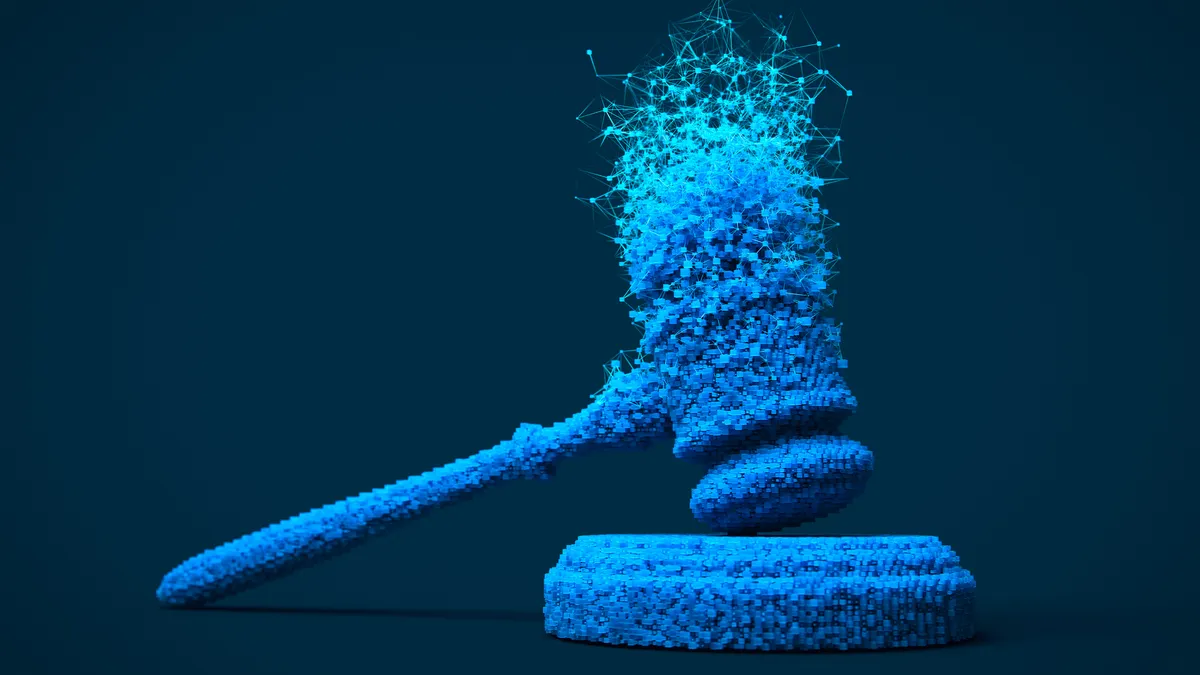Dive Brief:
- A former high school principal is suing Maryland’s Baltimore County Public Schools, alleging that a former athletic director used artificial intelligence to generate a deepfake audio recording depicting the principal making racist and antisemitic remarks.
- The lawsuit, filed Jan. 7, calls for a jury trial and claims the district removed principal Eric Eiswert from his role at Pikesville High School despite being informed by Eiswert’s union that forensic experts found the audio recording to be “compiled in a fraudulent and deceptive manner, and possibly entirely fabricated using AI tools.”
- Eiswert’s lawsuit alleges that BCPS’ inaction “to correct the record” on the audio evidence “allowed the national destruction” of his reputation to go on while he endured “public humiliation and violent threats.”
Dive Insight:
Specifically, Eiswert is suing BCPS for negligence in hiring, retention and supervision, as well as for defamation, slander and libel.
The former athletic director, Dazhon Darien, is currently awaiting trial on charges including theft, disruption of school operations, retaliating against a witness and stalking. Eiswert’s lawsuit also names Dazhon, as well as several teachers and administrators.
By failing to properly vet and supervise employees, BCPS and the individuals named in the lawsuit "put the safety of staff and students, and the integrity of our schools, at risk," said Brian Cathell, an attorney representing Eiswert for Wais Vogelstein Forman Koch & Norman, in a statement emailed to K-12 Dive.
“BCPS’s failure to follow its own hiring and oversight processes caused significant damage to Mr. Eiswert, and its lack of response to the defamatory audio encouraged the continuing harm,” Cathell said. “Mr. Eiswert has spent his career as a dedicated educator and is hopeful that this lawsuit will drive meaningful change in protecting students, teachers, and administrators.”
Baltimore County Public Schools declined to comment on the case.
The lawsuit demonstrates the challenges AI poses to schools and how deepfakes can threaten not just students’ rights and safety, but also those of teachers and school leaders.
In fact, research released in September by the Center for Democracy and Technology found that 43% of surveyed teachers who had heard about sexually explicit deepfake images being shared at their school said that staff members including teachers and administrators were depicted in these images during the 2023-24 school year.
This Baltimore case could also set an early precedent for district accountability over decisions — or lack thereof — when it comes to the use of AI in schools and how deepfakes are addressed. While federal legislation to address deepfakes is lacking, there was an increase in state legislation in 2024 with at least 50 bills being enacted to combat the issue, including in California, Florida and Tennessee, according to the National Conference of State Legislatures.









